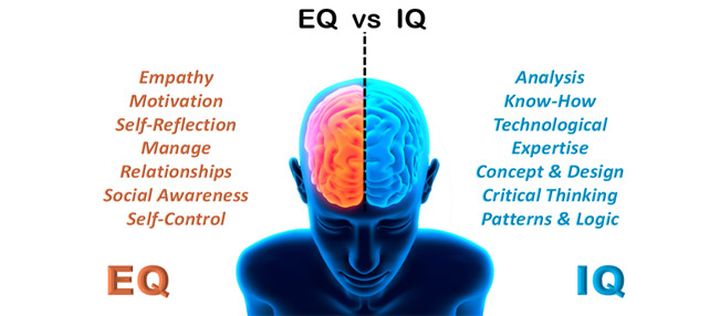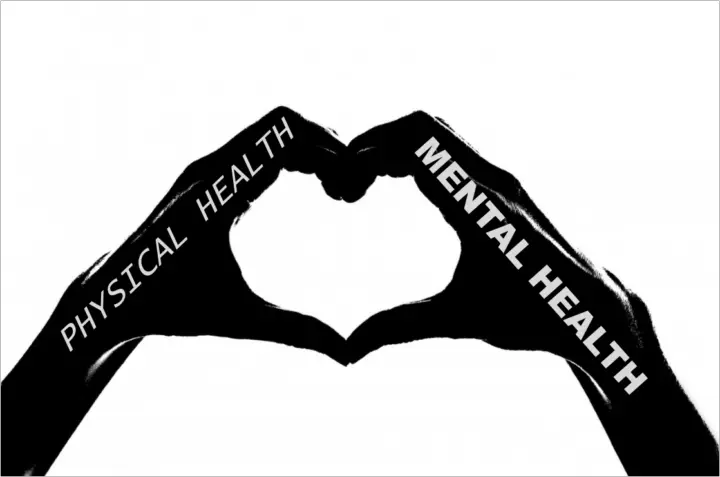8 Signs of High Emotional Intelligence

Some people are born with a certain higher predisposition for intelligence, others with a lower. However, intelligence is no longer a narrow term. As psychology developed, so did the knowledge about different types of intelligence one person might possess.
All of us are aware of the intelligence quotient (IQ) that can be evaluated by taking a test, such as iq-global-test.com. It’s something we’re born with and represents our intelligence capacity that cannot be changed. However, there are other aspects of intelligence that can be influenced over life, such as emotional intelligence.
What kind of intelligence is it? It is your awareness of the emotions occurring inside of you, affecting your mood and behavior, especially when in contact with other people. What is the difference between these two? Apart from being a constant thing (unchangeable over time), a high IQ does not necessarily guarantee a person is smart and will do great things in life. On the other hand, being highly emotionally intelligent means, you’ll probably do well in life, in terms of easily coping with whatever it gives you.
But, how can you know you’re emotionally highly intelligent? Not like you can take a test… That’s why the following 8 signs will give you a hint based on which you can conclude yourself.

1. You’re Curious By Nature
You are always looking for answers and new knowledge. Your insatiable curiosity allows you to make improvements in yourself and in everything around you. Your positive energy and passion for life attract people around you whom you help to see more possibilities than impossibilities in life themselves. You inspire others to feel life with excitement.
2. Grateful For What You Have

The level of gratitude and contentment we feel and express daily tells a lot about how happy we are. Happy people are emotionally intelligent people. When you are more focused on what you already have, and you are grateful for it rather than what you don’t have and would like to have, you are more able to set yourself new goals in life and achieve them. So if you want something you don’t have, be thankful for what you already have. In addition, this kind of thinking allows you to be more effective in your own environment.
3. You’re Ok With Imperfections
People with a high quotient of emotional intelligence know that neither they nor any other person in the world is perfect. We are all people with flaws and everyone can work on themselves to become a better person. Knowing this, and being honest about it, can help you fix your own flaws and be a better person without having unrealistic expectations.
4. You Are Very Empathetic
Do you have that feeling of knowing exactly what it’s like for people when experiencing certain things in life? If yes, and if you feel burdened by it sometimes, don’t. People with high emotional intelligence are also very empathetic, that is, they are able to empathize with others, which helps you find something positive in every negative situation and find a solution to conflicts.
5. You Adapt Well To Change
You don’t experience yourself as a “victim” of change, but you accept the changes and know how to adapt to them. You understand that changes in life are inevitable and you welcome them because you see them as an opportunity for new opportunities.
6. Your Self-awareness Is Highly Developed
When people tell you what you can or cannot do, you don’t fall for it, because you already know what you’re capable of. You are aware of your strengths as well as your weaknesses. This knowledge gives you the opportunity to take full advantage of everything that can help you achieve success in life.
7. You Care For Your Physical And Mental Health

Awareness of the importance of good health, both mental and physical, is also a characteristic of people with a high quotient of emotional intelligence. You know that good health allows you to achieve everything you want in life and that is why you take care of your mind and body by eating healthy, exercising, getting enough rest and maintaining healthy relationships with other people, and laughing often.
8. You’re Good At Recognizing How You Feel
Detecting your emotions and “labeling” them correctly is something that comes easy to you, and is also connected to self-awareness. You manage to recognize emotions beyond happiness and sadness.
Since we now know that emotional intelligence can develop over time (it’s not something limited by our birth), what are the ways to increase it? Here’s a couple of suggestions.
1. Learn to recognize feelings. Constantly explain your feelings to yourself. You often ask yourself “how do I feel?”, And if you feel a whole range of different emotions, distinguish them and rank them. But never exaggerate or minimize them.
2. Take responsibility for your feelings. Don’t look for external explanations for what you feel or constantly portray yourself as a victim. Recognize how you feel and try to understand why you are feeling it.
3. Anticipate your feelings. Learn to predict in advance how you will react after a particular event or action. Avoid doing things that will inspire negative feelings.
4. Ask others how they feel. You can’t know how someone feels if you don’t ask them unless you have a highly developed empathy. Either way, you need to understand them first to be able to empathize with them. Listen to them carefully without prejudice.
5. Be less sensitive. If someone says something you don’t agree with, don’t back down or attack right away. Such reactions only say that you cannot deal with criticism. Instead, thank them for their honesty and focus on the value of their comments.
6. Take a holistic view of the problems. When something bad happens to you and you think the whole world is failing, think about how serious your problem really is. How important will it be in 10 years? Ten months? Ten weeks? Ten minutes?
As we mentioned in the introduction. Emotionally intelligent people are happier and more successful. Why not do some work on yourself and attain perpetual happiness?
